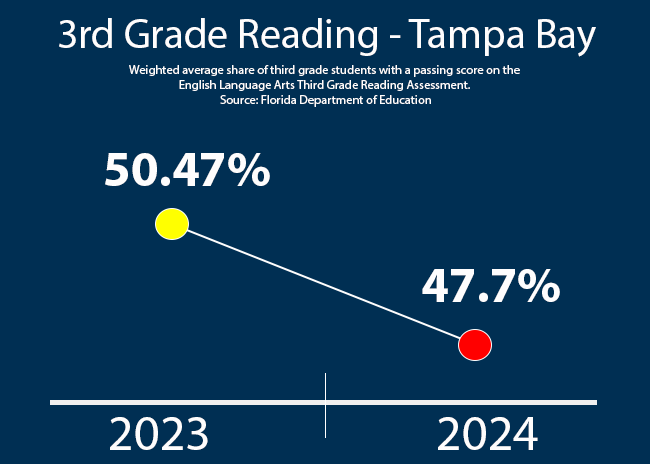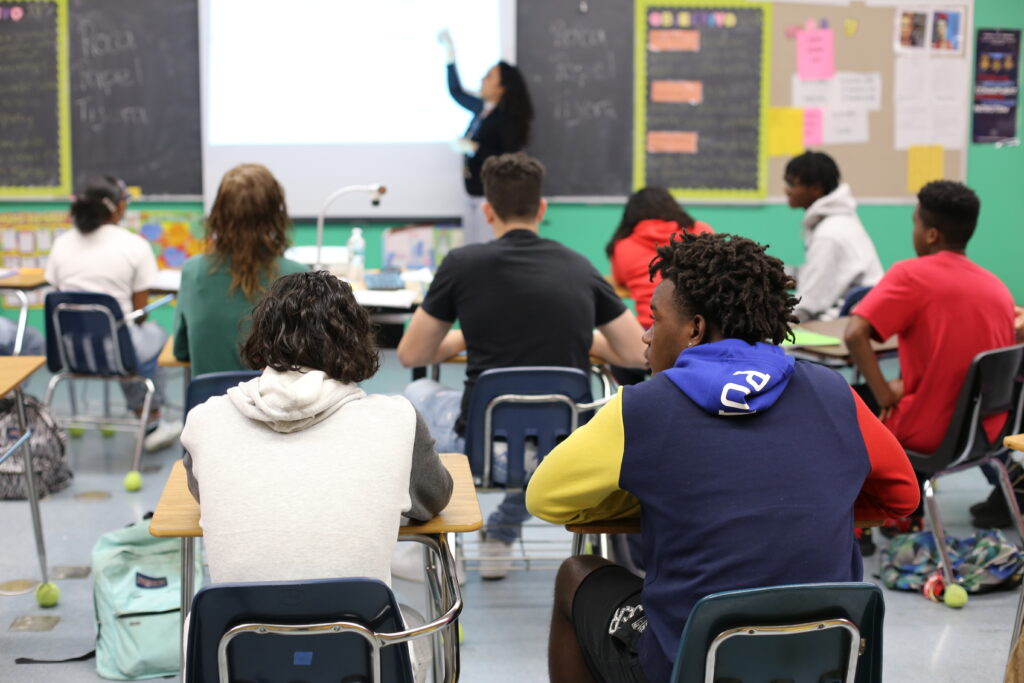
Amid the picturesque beaches, bustling cities, and vibrant communities lies a sobering reality for the State of Florida: a significant portion of our population struggles with basic literacy. From children navigating their early years of education to adults wrestling with basic tasks, the state’s literacy crisis casts a long shadow over its natural beauty and promise of economic opportunity and growth.
There are three main challenges:
- A Lack of Educational Funding: Florida’s education system has faced budget constraints and funding challenges over the years, impacting resources available for literacy programs, teacher training, and classroom materials.
- A Large Population: Florida has a diverse, sizable (and growing) population, including many immigrants and non-native English speakers. Language barriers can pose challenges to literacy development, especially for students who come from homes where English is not the primary language.
- Poverty & Socioeconomic Factors Impacting Early Childhood Education: Poverty and socioeconomic disparities can significantly impact literacy rates. Children from low-income families may have limited access to books, educational resources, and quality preschool programs, which are crucial for early literacy development.
Of course, there’s no magic overnight fix for the issues at hand. Addressing Florida’s literacy crisis requires a multi-faceted approach that includes increasing funding for education, providing professional development for teachers, expanding access to high-quality early childhood education, addressing socioeconomic disparities, and promoting a culture of reading and literacy within families and communities.
However, the one clear place to start would be with children. Research, like the landmark “Early Warning! Why Reading By the End of Third Grade Matters” study, has consistently shown that it’s crucial for children to be proficient readers by third grade; if not, they may struggle across various subjects that require reading comprehension, such as science, social studies, and math, creating a domino effect of poor academic performance that can lead to eventual dropout, limited employment opportunities and a lifetime earning potential that essentially translates to financial hardship—if not outright poverty.
For Tampa Bay residents, the importance of third grade reading proficiency should be a cause for great concern. According to StateoftheRegion.com, the Tampa Bay Metro Area’s Third Grade Reading proficiency score stands at 47.7%, which is a weighted average share of third grade students with a passing score on that assessment.
And here’s the truly disconcerting part: that score is down roughly 3% from the previous year. So, things aren’t getting better. And the numbers are even worse for students of color and students who are economically disadvantaged.
This ongoing problem is just one of the reasons why Hillsborough Education Foundation partnered with Helios Education Foundation and the Community Foundation of Tampa Bay to create the Transforming Early Literacy Initiative (TELI), an innovative program designed to help build and refine educator practices at 12 underserved elementary schools in Hillsborough County by providing them with 4 full-time literacy coaches. TELI’s approach is both strategic and data driven. These 12 schools, reporting only 27% proficiency in third grade, were identified based on a clear need for early literacy support.
The brilliance of TELI is that it addresses the unique needs of young learners, ensuring that core literacy instruction is both effective and personalized.If you’re looking for ways to help turn the tide in Florida’s literacy crisis, consider donating to HEF, so that we can continue to work on innovative programs like TELI, and equip students and teachers with the resources they need to succeed.

